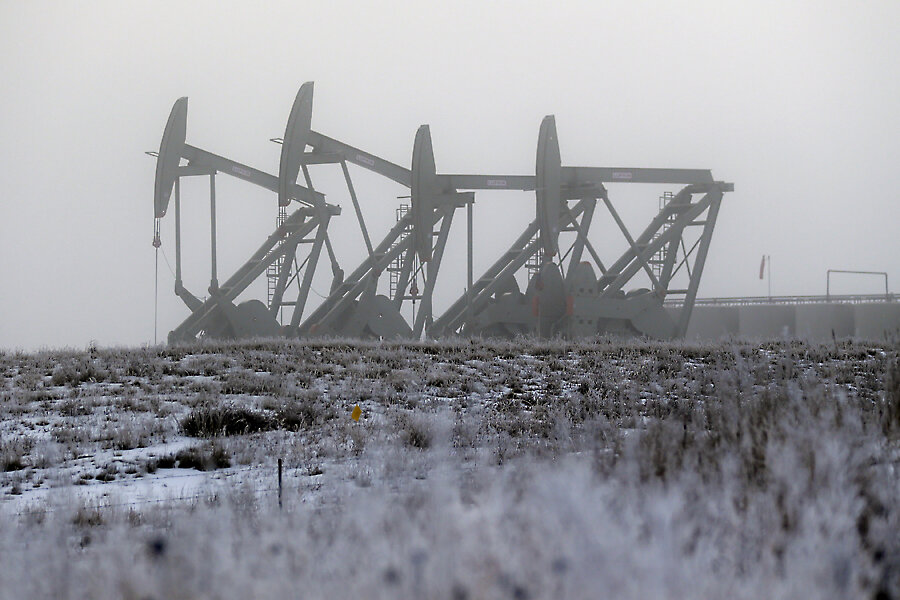Why cheap oil is bad news for banks
Loading...
The oil markets are showing some life, having rallied 11 percent over a two-day period. But if a bigger rebound is not around the corner, it won’t just be oil companies that will be feeling the pain: their lenders will also face some steep losses if drillers can’t come up with the cash to cover debt payments.
Drilling for oil is an expensive process. Until the oil begins to flow, companies have to shell out cash without seeing much in return. Without revenues from other wells already in production, oil companies have to take on debt to finance operations. Even for companies with big production portfolios, debt is a crucial source of funds to keep the treadmill of new drilling going. Between 2010 and 2014, the oil industry took on around $550 billion in debt, a period of time in which oil prices surged. Now with a crash, that volume that becomes especially hard to service.
The largest banks – JP Morgan, or Citibank, for example – are so massive that losses on loans to the energy industry will likely result in only “slight negatives,” as JP Morgan’s Jamie Dimon put it a January conference call with investors. But smaller more regionally-focused banks, especially in Texas and North Dakota, are facing a much bigger problem. (Related: Oil Majors’ Profits Take A Beating)
During the last oil crash in the 1980’s, around 700 banks failed after oil prices crashed. Analysts aren’t expecting failures to come close to those numbers, but there are a series of banks that have high percentages of their loan portfolios coming from the energy sector. For example, companies like International Bancshares has (42.4 percent), and Cullen/Frost Bankers (35.9 percent), two Texas-based regional banks, are highly exposed, as CNN Money reported in January.
Canadian banks are also reeling from oil prices that have dropped by more than 50 percent since mid-2014. The S&P/TSX Commercial Banks index, an index of eight Canadian banks, dropped by around 10 percent in January, the index’s worst start to a year since 1990, according to Bloomberg.
Even British banks could be on the hook. The Royal Bank of Scotland, Barclays, and a series of other British banks are exposed to more than $50 billion in high-yield loans in the energy sector.
But not all lenders are in trouble. Eyeing wounded animals, some financial vultures sense an opportunity. Hedge funds and private equity are stepping into the fray, providing credit to distressed oil companies at exorbitant rates. Shut out of traditional debt markets, oil companies drowning in debt have few other options. Particularly for smaller drillers, these emergency loans provide a lifeline to pay off other debt.
Bloomberg reported on February 2 that several major private equity firms – Carlyle Group, Apollo Global Management, Blackstone Group, and KKR – are in the midst of taking massive positions in indebted oil companies.
KKR, for example, provided $700 million in credit to Preferred Sands LLC, a producer of sand used to frack oil and gas wells. In exchange for the emergency loan – which carried a 15 percent yield – KKR took a 40 percent ownership stake in the company. Blackstone did a similar deal with Linn Energy LLC, another struggling oil firm. (Related: Chevron Responds To Eight Week Drop In Rig Count By Slashing Jobs)
The New York Times chronicled the case of Resolute Energy, a company barely alive after being overwhelmed by debt. Highbridge Capital Management, a hedge fund, provided $150 million in loans to the company at a more than 10 percent interest rate.
The onerous terms on new debt obviously makes it even less likely that oil drillers will be able to get back on their feet. But these vulture investors know that they can seize assets in the event of a bankruptcy. And if oil prices do turnaround, then these financial institutions come away with potentially lucrative oil-producing assets that they obtained at fire sale prices.
“The single best opportunity to invest is distressed debt in energy,” David Rubenstein, a co-founder of The Carlyle Group, said in Davos at the World Economic Forum.
By Nick Cunningham of Oilprice.com
More Top Reads From Oilprice.com:
- Leaked Document Could Shatter UK Shale Dreams
- U.S. Shale Boom May Come To Abrupt End
- Why $50 Oil Won’t Last
Source: http://oilprice.com/Energy/Oil-Prices/Rise-Of-The-Vulture-Investing-Class.html







